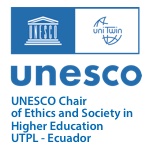Neurotheology and theological rationality in Andrew Newberg
Abstract
This paper follows Andrew Newberg’s way of thinking in theology. Newberg is one of the main authors in Neuroscience of theology or Neurotheology. In his work Principles of Neurotheology (2010), he speaks as a neuroscientist in a world of theologians, but not as someone outside or contrary to theology, but as a scientist who considers himself, thanks to his knowledge, closer to God than other theologians. Newberg tries to expose a scientific explanation of why religious behavior and religious thought cannot (and should not) be suppressed nor religion has to be separated from human life.
Downloads
References
Newberg, Andrew. (2010). Principles of Neurotheology. Surrey: Ashgate.
Newberg, Andrew (2014). «The neuroscientific study of spiritual practices». Frontiers in Psychology 5: pp. 1-6. https://doi.org/10.3389/fpsyg.2014.00215.
Múnera, Juan Carlos (2019): «Neuroteología y la naturaleza de la experiencia religiosa». Theologica Xaveriana 69 (187): pp. 1-24. https://doi.org/10.11144/javeriana.tx69-187.nner
Shukla, Samarth, Acharya, Sourya y Rajput, Devendra (2013). «Neurotheology-Matters of the Mind of Matters that Mind?». Journal of Clinical and Diagnostic Research 7 (7): pp. 1486-1490. https://doi.org/10.7860/JCDR/2013/5409.3181.
Copyright (c) 2021 ©️ Analysis

This work is licensed under a Creative Commons Attribution-NonCommercial-NoDerivatives 4.0 International License.








